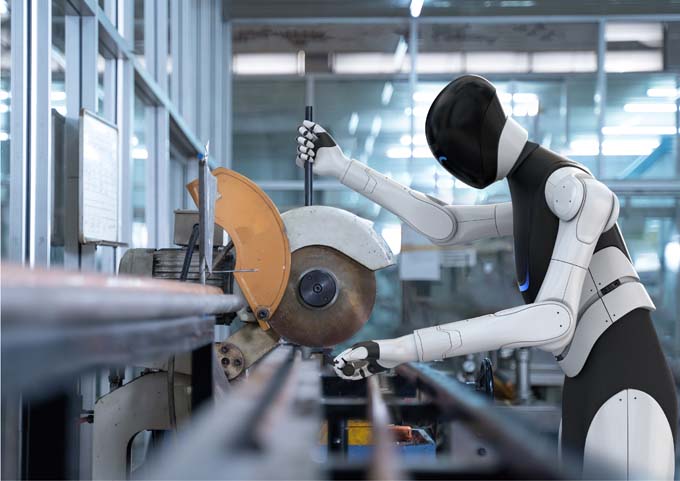A passport for construction material waste
A newly founded platform aims to offer construction components in a kind of raw materials hub: Madaster Switzerland was founded on March 1, 2019 in Swiss Re to promote the reuse of materials and invest in smart designs of different Swiss sectors.

Marloes Fischer, initiator and managing director of Madaster Switzerland, is convinced: "The world is so full of resources. With our online building resource library, we can simplify the search and procurement of materials, taking into account industry-specific needs in Switzerland. »
Developments in digitalisation and the circular economy will bring about a paradigm shift in the view of the Dutch-Swiss lean manager.
Is it "only" about increasing value or efficiency? Marloes Fischer emphasizes: "We offer per se an online register for building components and building material passports (see infobox). This creates a lot of transparency. This offers our partners new perspectives and business models. For example, they think of optimized mortgage assessments, pay-per-use approaches, proactive maintenance, material controls or insurance-related processes."
However, such business models are far more convincing if they bring circular benefits. "Many investors ", says the initiator, "forget to include the deconstruction phase in their construction projects. We have a Circularity Indicator that allows us to precisely evaluate the reusability of obstructed building materials."
The Madaster dossier even describes a 3D model in which each component could be located and further specified.
Up to now, you might be familiar with such tools from the registration of land and properties or from professional exchange platforms among architects. Now Madaster wants to revolutionize the Swiss construction industry. Five high-profile companies have already been won over for the digital circular platform: Eberhard Unternehmungen, Losinger Marazzi, Swiss Prime Site AG, Swiss Re AG and Raiffeisen Switzerland.
"Until now," says Marloes Fischer at the launch of Madaster Switzerland on 1 March 2019, "construction waste recycling has not received much attention. However, if something is given an identity, it has value and may not end up in landfill. The impact of our platform is immediately obvious:
We're learning digitally to build circularly, pulling in use and deconstruction at the design stage."
Valuable and resource efficient
More precise material appraisals would mean that buildings would not have to be depreciated to "zero" straight away. Individual materials could retain a value independent of the real estate market. "We will be able to assess the value of construction goods and buildings even better using tools such as Madaster," said Louis Grosjean, Head of Segments & Projects Corporate Clients at Raiffeisen Switzerland, for example, about the partnership with Madaster Switzerland.
Madaster is also supported by the Swiss Society of Engineers and Architects (SIA). "There is no alternative to the circular economy - in the construction and real estate industry as well. Madaster is the first concrete initiative that will allow the transformation of the industry. It fits ideally into our digitalisation strategy", comments Stefan Cadosch, President of SIA, on the initiative.
The real estate company Swiss Prime acts not only from an ecological but also from an economic point of view. "In the long term, we are aiming for an emissions-neutral building stock. With the Material Passport, we get to know the circular value of our real estate portfolio better and can thus achieve our sustainability goals," says Urs Baumann, Head Sustainability and Innovation, Swiss Prime Site AG, explaining the motivation for being a partner of Madaster Switzerland.
Swiss Re is interested in global solutions that strengthen the resilience of urban systems and thus facilitate risk impact assessment. Swiss Re will work with Madaster and the design team to document the deconstruction of a Swiss Re real estate asset and use these materials to create a Madaster material passport for the design of a new structure.
Researchers in the "Urban Mining and Recycling (UMAR)" unit in NEST, Empa's research and innovation building, have registered the UMAR unit in Madaster, thus representing the circularity of the building in the material passport. The platform enables promising collaborations. Dutch building projects that fully recycle building materials have already demonstrated the value of maintaining, if not increasing, the value of a building over different use and renovation cycles.
"However, other factors such as modularity and dismantling capability are essential ", explains Marloes Fischer.
The management consultant sees Madaster technology as a concrete Swiss solution for realising resource efficiency in the construction and real estate sector. "Nevertheless," says the initiator and managing director of Madaster Switzerland, "the real challenge is not in the implementation. Our platform now needs visionary pioneers and investors."
Madaster Switzerland would like to shape the Swiss circular economy and the construction and real estate industry with a new standard. This could lead to a change in values towards circular, new and innovative business models. Madaster offers its platform publicly to inventory, structure and identify resource-relevant data of buildings in material passports.
Private individuals, companies and also the public sector can register their properties themselves in order to reuse materials and invest in smart designs. This is currently possible in Holland from 100 euros. For the time being, however, Madaster Switzerland is looking to find larger partner companies to establish the new platform.
"Using Building Information Modeling, you actually already determine the DNA of all building components," explains Marloes Fischer of Madaster Switzerland. "We enable owners to register building elements used and their location. A building thus becomes a documented 'storage place' for materials."
It helps builders, planners and developers to break new ground conceptually when designing, constructing and using buildings. In addition, the digital material passport enables investors to include the value of the materials in the overall assessment of the property.









